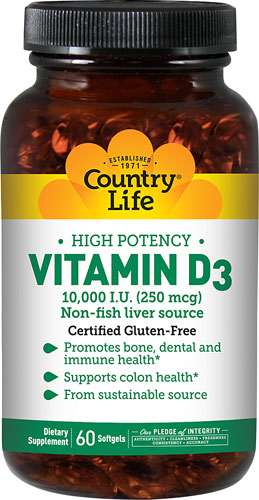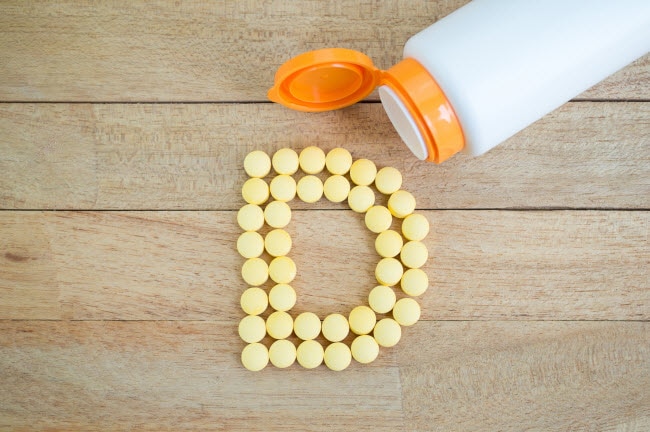Vitamin D has been hogging the supplement spotlight of late, creating even more buzz—and confusion. A recent New York Times article called vitamin D industry a “billion-dollar juggernaut;” questions abound as to whether it’s imperative or redundant in supplement form. Need more light shed on what’s often referred to as the “sunshine” vitamin?
Read on to answer your most pressing questions.
What is vitamin D and why do we need it?
We need vitamin D, a fat-soluble nutrient, to absorb calcium and phosphorus and thus make our bones strong. It also plays a key role in our immune system and neuromuscular system. We can get it through food, supplements and the sun. Our bodies do not produce vitamin D on their own—we depend on sunlight to synthesize the raw precursor to vitamin D that our skin contains. Because changes in lifestyle mean that many people have little exposure to sunlight, especially those living in northern climates in winter, in recent decades doctors have been concerned that large swaths of the population were not getting enough vitamin D.
What are the best food sources of vitamin D?
Vitamin D is found in fatty fish, such as tuna, mackerel, and salmon. Other good sources are foods fortified with vitamin D, such as milk, orange juice, soy milk and cereals. Beef liver, cheese and egg yolks are also vitamin D-rich.
What’s the difference between vitamin D2, D3, etc.? Why take one over the other?
Vitamin D exists in two main forms: vitamin D2 (ergocalciferol) and vitamin D3 (cholecalciferol).
Vitamin D3 is only found in animal-sourced foods; D2 mainly comes from plant sources and fortified foods. Research suggests that vitamin D2 contains less calcifediol (the most potent form of vitamin D) than an equal amount of vitamin D3. Many experts advise choosing a vitamin D supplement that contains vitamin D3.
How much vitamin D do I need?
This is the million-dollar question. During the past decade many vitamin D researchers and expert groups have argued strongly that a blood level of at least 30 ng/mL is ideal. But many experts have lobbied for even higher levels, such as 40 or 50 ng/mL. But the Institute of Medicine, in its major 2010 report, adopted a moderate stance. It found that blood levels starting at 20 ng/mL would be adequate in the vast majority of people. In terms of daily intake, the Institute of Medicine says that 400–800 IU, or 10–20 micrograms, is adequate for over 95 percent of the population.
How should it be taken (with food/on empty stomach)?
Since its fat soluble, many experts recommend taking the supplement with food, especially fat, which will enhance absorption. One recent study advises taking vitamin D with your biggest meal of the day.
How do I know if I’m getting enough?
If you avoid the sun, are lactose intolerant or are a strict vegan, you may be at risk. To ensure that you are not deficient, aim to get the recommended daily intake for your age from modest sun exposure, food, and a supplement if necessary.
Is it possible to get enough just from diet?
Unless you enjoy fish or liver on a daily basis, it may be hard to get enough vitamin D just from foods. Seek out fortified foods or hedge your bet by taking a vitamin D supplement. Milk, yogurt and some cereals are good sources of fortification. Mushrooms, eggs and cheese also contain small amounts.
†These statements have not been approved by the Food and Drug Administration. These products are not intended to diagnose, treat, cure or prevent disease.




